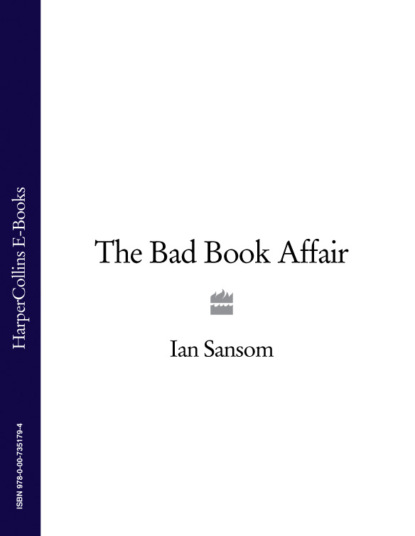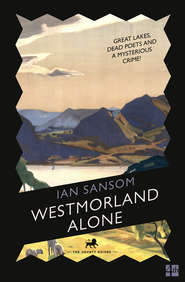По всем вопросам обращайтесь на: info@litportal.ru
(©) 2003-2024.
✖
The Bad Book Affair
Автор
Год написания книги
2018
Настройки чтения
Размер шрифта
Высота строк
Поля
Israel winked at her and reached down under the issue desk.
The Unshelved was an unofficial category of books that the library service—under considerable pressure from representatives from churches, and so-called ‘community’ groups and local political parties—had agreed not to display on open shelves in the mobile library. The arrangement had been made long before Israel’s time in Tumdrum, but apparently, unbelievably, it had been agreed that because of the unique status of the mobile library—its stock being so small, and its serving such diverse communities—certain books would be kept under the issue desk, duly catalogued and available for loan but unseen by the young, the impressionable and the mentally infirm who thronged the van’s potentially virulent, morally infecting eight-foot-by-three-foot browsing area. Books in the Unshelved category included perennial favourites such as Lady Chatterley’s Lover, A Clockwork Orange, Nineteen Eighty-Four, and American Psycho, and one or two racier titles such as Nancy Friday’s My Secret Garden and The Hite Report. During quieter moments in isolated laybys Israel had been known to have an occasional glance at the latter titles. There was, it seemed, no limit to human ingenuity and imagination. He’d also spent one entire uneventful afternoon on the van counting the various offensive words in Lady Chatterley. Thirty fucks or fuckings; 14 cunts; 13 balls; 6 each of shit and arse; 4 cocks; and 3 pisses. Which was quite a lot, really, when you thought about it.
Not that he agreed with censorship. Not at all. On the contrary. He did not agree with the Unshelved, on principle. As a north London Jewish vegetarian liberal freethinker—someone who would most certainly be reading the Guardian on a daily basis, if the Guardian were available on a daily basis in Tumdrum—Israel saw no problem with open access to all available books and to all of the rich and peculiar outpourings of the human mind. Once you were about eleven, frankly, in Israel’s opinion, you could and should be reading whatever was out there. You might not be able to drink alcohol, or marry, or drive a car, but surely you should be allowed to read Under the Volcano, and Madame Bovary, and Crash? How else were you going to learn? Personally, Israel had gone through all of William Burroughs, and D. H. Lawrence, and Norman Mailer, and Lolita in his local library back home in north London in his early teens, looking for the dirty bits, which usually someone else had already found and had marked on your behalf, and it hadn’t done him any harm at all. Or not much.
The only books in the library that Israel had any real doubts about were in fact the young adult readers, which were proudly and openly displayed on the mobile on the ‘Teen Fiction’ shelves, in their garish jackets with their sub-literate jacket blurbs. Israel avoided uplifting, joyous, life-affirming reads as much as the next man—who cares about the Five People You Meet in Heaven with Morrie?—but even he found some of the young adult material depressing and creepy. In Israel’s experience as a librarian most young teenagers these days seemed to be reading deeply disturbing, adult-sanctioned psycho-sexual fantasies about zombies and vampires. This probably tells you something very profound about where we are as a society, but Israel would have needed the Guardian, or perhaps the Daily Telegraph, to remind him exactly what.
The Goth waited patiently while Israel scooped up the dozen or so books from the shelf under the desk, and placed them on the table. It was always a slightly awkward moment, the displaying of the great Unshelved—you never knew if the borrower really was looking for George Orwell, or was really angling for Madonna’s Sex. Israel suspected that Nineteen Eighty-Four was borrowed more times out of embarrassment than out of choice. He always preferred to absent himself while the borrower…browsed.
‘I’ll, er…just tidy a few books here,’ he said.
When the young woman’s nervous shuffling made it clear that she had made her decision, Israel swiftly and discreetly issued the books with half-closed eyes.
‘Thank you, then. Enjoy your reading!’
Philip Roth. American Pastoral: the young woman would not be disappointed.
Israel glanced at his watch.
Eleven o’clock.
Which in a town like Tumdrum, wherever you were, meant only one thing.
Zelda’s.
He called Gloria, again, quickly.
No reply.
3 (#ulink_fcf3bbfe-941f-5a7c-b960-59319c0e1f1c)
Pearce Pyper was wearing an oatmeal jumper—or, at least, a woollen jumper of an oatmeal colour—and a pair of bright red, corduroy, paint-splattered plus-fours, and worn brown leather sandals, and knee-length papal yellow socks, and a black beret. Two of his dogs, the mongrels, Picasso and Matisse, in their matching blue paisley neckerchiefs, sat by him, eyes closed, tongues lolling, like a couple of huskies exhausted from some long artistic hike. Pearce had a greasy-looking cap down at his feet, a viola in one hand, and a straggly bow in the other. He had recently grown a thin, grizzled beard, and he wasn’t looking at all well. He was standing like a wind-cracked Lear on the stormy heath, except he was in Tumdrum, standing outside Zelda’s Café, staring into the distance, a rheumy, faraway look in his eyes, as if he’d suddenly caught sight of his own destiny and it wasn’t looking good.
‘Pearce! How are you?’ said Israel, as he and Ted approached the door.
‘Israel, Israel!’ said Pearce, his voice thin but still forceful, the gingery voice of George Bernard Shaw on an old wax cylinder. ‘How lovely are the…’ He started coughing. ‘Feet of thee…’
‘Er…?’
‘Israel…?’ asked Pearce.
‘Armstrong,’ said Israel, generously. ‘Israel Armstrong.’
‘Ah!’ Pearce pantomime-smacked his forehead. ‘Of course!’
‘The librarian?’ offered Israel.
‘Yes. Yes. Have you lost weight?’
‘Maybe a little bit.’
‘And the beard?’
‘Yes.’
‘El Barbaro,’ said Pearce. ‘Had dinner once with Castro. With my second wife. Pork. Relentless talker.’
‘Aye, that’s the two of yous, then,’ said Ted.
‘Sshh,’ said Israel.
‘Is he dead?’ asked Pearce.
‘Fidel Castro?’ said Israel. ‘No, Pearce, I think he’s still going strong.’
‘I heard he’d died,’ said Pearce.
‘No, that was maybe Che Guevara.’
‘Oh. Really. But how are you…?’ asked Pearce.
‘Israel.’
‘Israel, yes.’
‘Good, thanks, yes…Erm, Pearce?’
‘Yes, my dear?’
‘You’re playing the violin?’
‘Viola, Israel. Viola. You can tell the difference, surely? Oxford-educated man like yourself.’
‘Oxford Brookes,’ said Ted, taking a last, deep, desperate draw on his cigarette before going into the café. ‘Wasn’t it? The polytechnic.’
‘Ex-polytechnic,’ said Israel. ‘Thank you, Ted. Ex.’
‘Aye,’ said Ted, coughing.
‘Oxford,’ said Pearce, reverently, as though describing a lover. ‘Much darker tone.’
‘Sorry?’ said Israel. ‘You’ve lost me. Oxford has a much darker tone than…?’
‘The viola,’ said Pearce. ‘Compared to the violin. Much darker. Voice of the soul. C. G. D. A.’ Pearce plucked at the strings of the instrument in his hand. ‘Prelude to the Bach cello suites, arrangement by an old friend of mine. My first wife—beautiful soprano voice. Igor wrote something for her mother…’
‘Erm.’ Israel hesitated. Pearce had recently been showing signs of memory loss and confusion. He’d been found as far away as Belfast, on his bicycle, claiming that he was riding in the peloton in the Tour de France. ‘You know you’re outside Zelda’s, playing your violin?’ said Israel.
‘Viola,’ said Pearce. ‘I’m collecting money for the Green Party. Forthcoming elections. Need every penny.’











